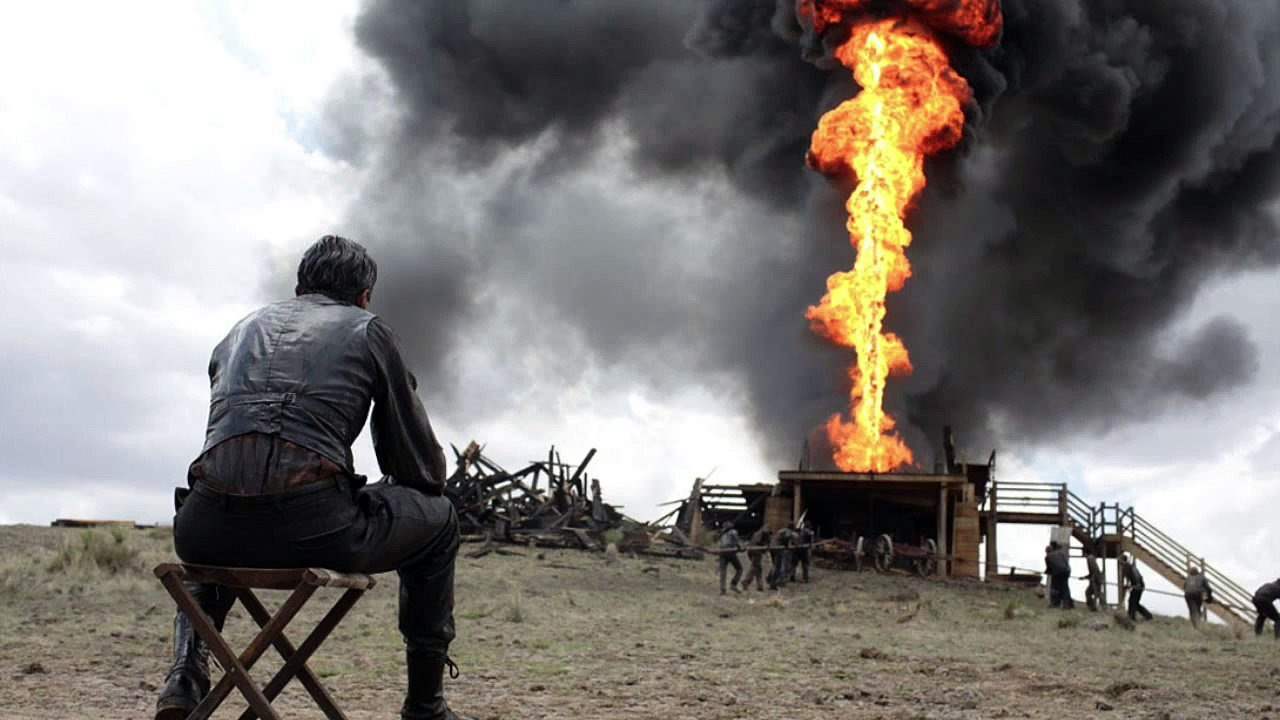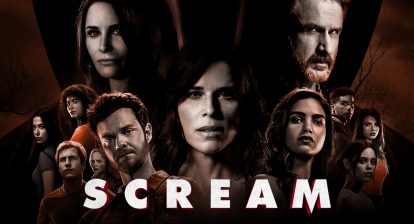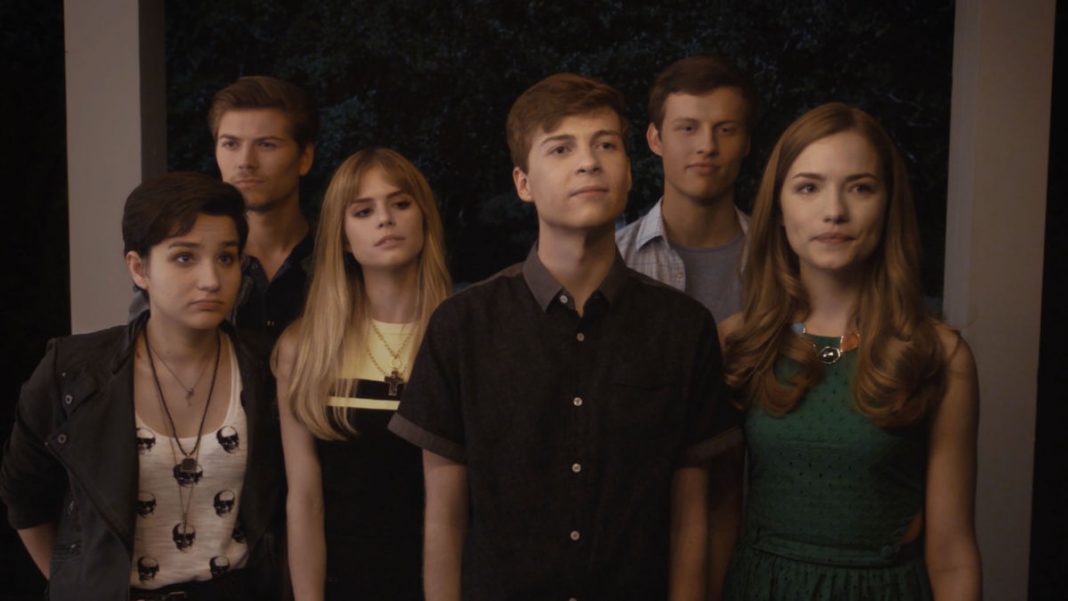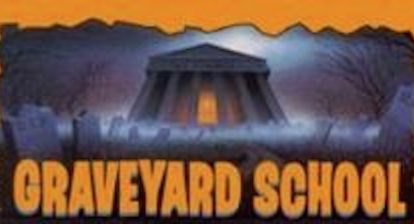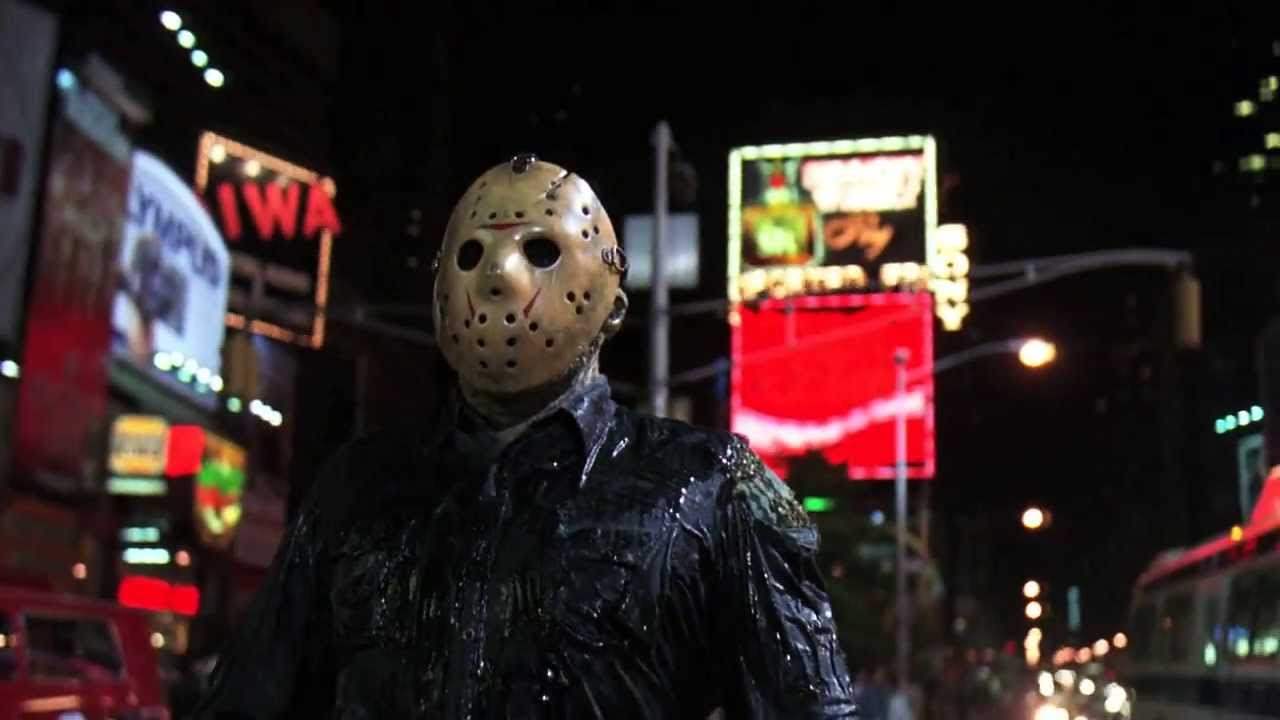Horror is evolving as a genre. Although your local multiplex is still loaded with the usual contenders, look a bit closer and you’ll find the latest drama, thriller, or crime offering is closer to horror than you might expect. In this bi-weekly series, Joey Keogh presents a film not generally classified as horror and argues why it exhibits the qualities of a great flight flick, and therefore deserves the attention of fans as an example of Not Quite Horror. This week, it’s There Will Be Blood.
Sometimes, a Not Quite Horror movie doesn’t have to be violent or gory. Sometimes it doesn’t even have to be particularly scary. Sometimes all that’s needed is a mood. And, in the case of Paul Thomas Anderson’s masterful, Oscar-winning There Will Be Blood, it’s a mood loaded with dread that qualifies the film for inclusion. From that very first establishing shot we know something terrible is about to happen.
The title alludes to bloodshed, but the flick is relatively low on violence right up until its knockout finale, which sees Daniel Day-Lewis’s Daniel Plainview beat preacher Eli (a revelatory Paul Dano) to splattery death. Its most famous line (“I drink your milkshake!”) may seem goofy out of context, but after a good two hours of build-up, when Plainview finally lets loose with it, it’s stomach-churning.
There Will Be Blood may ostensibly be Plainview’s story, but it’s really a two-hander between Day-Lewis and Dano. Although the wealthy, successful prospector seems to be in control at first, it’s his acquiescence to the preacher in a public display of humiliation – in order to secure vital land for a planned piping system – that sets the two of them on a path to destruction.
It could, therefore, reasonably be argued this is a story of greed, of selfishness, and ultimately of punishment for one’s sins, with two men at its heart who have vastly opposing outlooks on life. Day-Lewis was (rightly) honoured by The Academy for his commitment to the role, but without Dano’s wild-eyed fanaticism it would be difficult to really invest in his journey.
Paul Thomas Anderson is daring us to decide who the real villain is, here; the man who’ll do anything, including abandoning his deaf child, to get ahead in business or the holy man who extorts him for money so he can build his own parish and fill it with worshippers for his cause. Likewise, who is to blame for kick-starting their violent rivalry?
The Coen Brothers’ No Country For Old Men (another classic of NQH) was released the same year as Paul Thomas Anderson’s dark, tense, super-slow-burner and, in many ways, it displays more obvious genre characteristics. There Will Be Blood doesn’t boast a serial killer, or even a pile-up of bodies (unless we count those poor men who perish while drilling for oil).
Instead, PTA’s film draws upon an overarching, pessimistic outlook, a soul-crushing feeling of despair, where even when things start to go well for Plainview, they’re really going to hell. This is best represented by his final scenes where, stationed in his mansion, surrounded by wealth and opulence, as he always wanted, we witness him lonely, filthy and uncaring.
Rather than being happy and fulfilled, as he should be, Plainview is hopeless. And, as his final line exemplifies, what’s most frightening of all is that he doesn’t seem too pushed either way.
